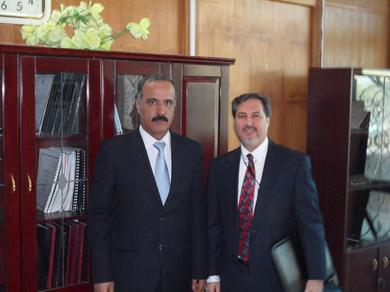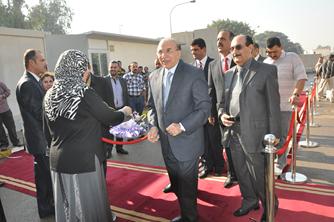
General Counsel Meets Judges of Newly Established Iraqi Commercial Court
DSLM’s General Counsel met with judges of the newly established Iraqi Specialized Commercial First Instance Court.

DSLM’s General Counsel met with judges of the newly established Iraqi Specialized Commercial First Instance Court.

The Iraqi Higher Judicial Council (HJC) officially opened the specialized First Instance Commercial Court in Baghdad on 24 November 2010. This Court is the first
Welcome to Dar Salam Legal Consultancy and Translation Services, LLC (DSLM). We are a professional Iraqi legal consultancy firm with offices in the upscale Arasat district of Baghdad and an affiliated office in Houston, Texas.
International: +1-888-202-1975
Iraq: +964-(0)770-897-7400
U.S.: +1-281-616-6611
Fax: +1-202-380-9434
©2025 DSLM LAW | All Rights Reserved | Website by Kodiak Creative